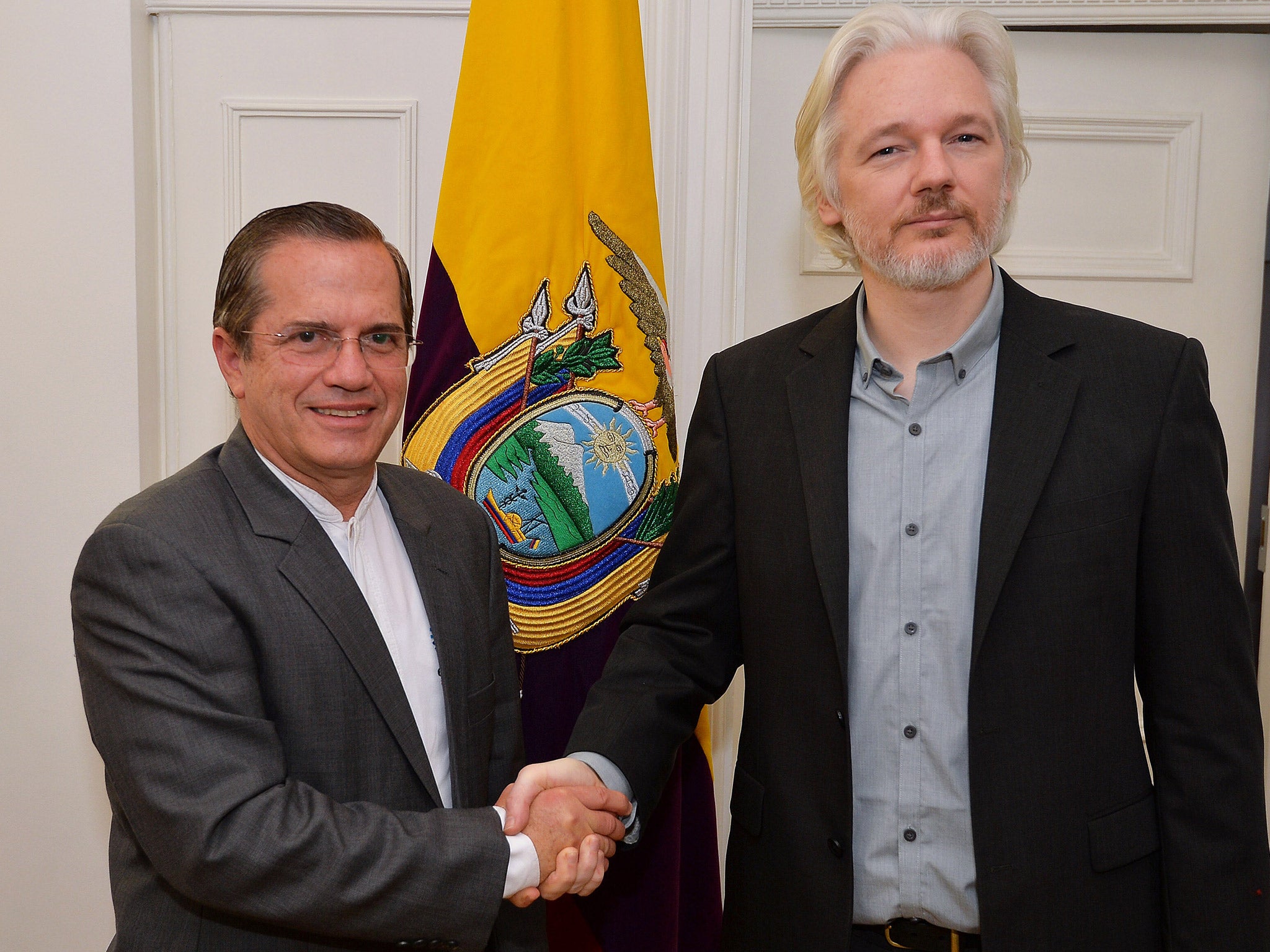Julian Assange: Ecuador agrees to open talks with Sweden on allowing prosecutors to question the Wikileaks founder over sex-crime claims
Mr Assange is wanted for questioning in Sweden over alleged sex crimes in Stockholm in August 2010 but resisted extradition

Your support helps us to tell the story
From reproductive rights to climate change to Big Tech, The Independent is on the ground when the story is developing. Whether it's investigating the financials of Elon Musk's pro-Trump PAC or producing our latest documentary, 'The A Word', which shines a light on the American women fighting for reproductive rights, we know how important it is to parse out the facts from the messaging.
At such a critical moment in US history, we need reporters on the ground. Your donation allows us to keep sending journalists to speak to both sides of the story.
The Independent is trusted by Americans across the entire political spectrum. And unlike many other quality news outlets, we choose not to lock Americans out of our reporting and analysis with paywalls. We believe quality journalism should be available to everyone, paid for by those who can afford it.
Your support makes all the difference.A deadlock in the case of Julian Assange has broken after Ecuador agreed to open talks with Sweden on allowing prosecutors to interview the WikiLeaks founder in London about sex-crime claims.
The announcement came as the Swedish statute of limitations on two allegations of unlawful coercion made against the Australian by two Swedish women expires on 13 August, while another count of sexual molestation expires on 18 August, raising questions over whether he might walk free. However the prospect is unlikely as he still faces a potential charge of rape, the limitation on which does not run out until 2020.
Mr Assange is wanted for questioning in Sweden over alleged sex crimes in Stockholm in August 2010 but resisted extradition, seeking assurances that he would not be transferred to the US where he is wanted on spying charges. In 2012 he was given asylum by Ecuador and has been confined inside its UK embassy ever since. He has not been charged with any offence but Sweden has issued a European arrest warrant.
Mr Assange has repeatedly offered to be interviewed in London over the allegations, which he denies. Swedish justice officials previously said they were reluctant to interview him in the embassy, but opened negotiations with Quito after being criticised by Swedish appeal court judges for failing to make every effort to prosecute him.
The deadlock appeared to have been broken after Swedish officials confirmed Ecuador had accepted the offer of talks. “The coming discussions will show if this is a way forward,” said Cecilia Riddselius, a justice ministry official.
Despite the breakthrough it was confirmed the talks are unlikely to take place before legal limits on three of the four charges Mr Assange could face expire.
Mr Assange’s legal representatives have criticised Swedish prosecutors, insisting the matter could have been dealt with properly five years ago. “We offered his testimony from London before the arrest warrant was issued, and have continued to offer it since. The prosecutor could have – and should have – availed herself of this mechanism.
“Denying him this possibility for five years is the original injustice that has enabled many more injustices. Julian hasn’t been charged, yet he is being punished. This amounts to pre-trial punishment and is a gross abuse of his human rights and the legal system.”
Mr Assange was unavailable for comment.
Join our commenting forum
Join thought-provoking conversations, follow other Independent readers and see their replies
Comments